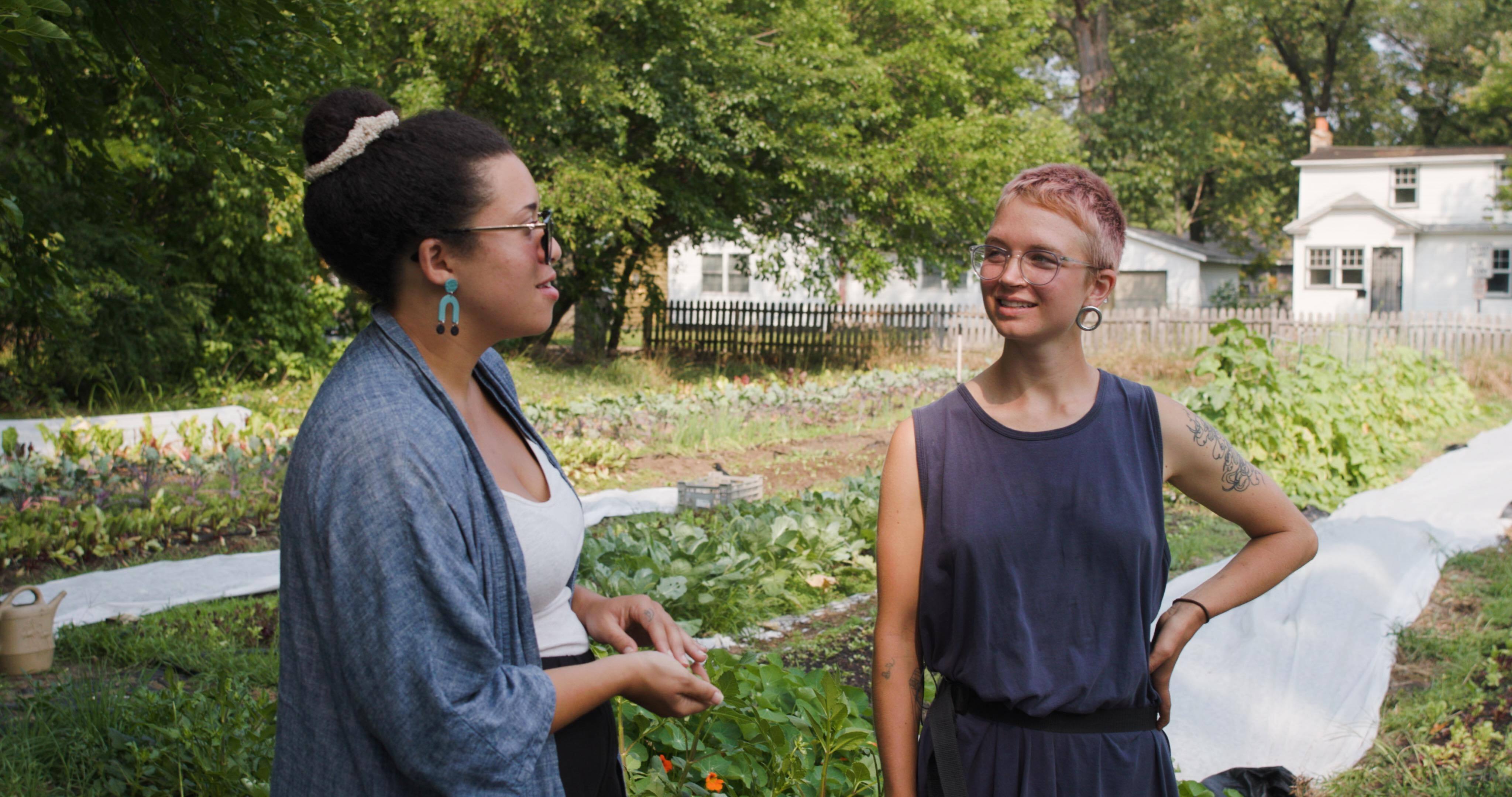This is the first installment in a blog series featuring the winners of our 2022 Muck Boot Chapter Capacity Grant program. The grant program awarded five Young Farmers chapters with $5,000 to compensate themselves for their organizing efforts or to cover expenses for a specific project, such as COVID-19 response efforts, racial equity trainings, or virtual platforms to increase connectivity.

Land access is the number one barrier facing beginning farmers striving to build successful careers in agriculture across the country, and that barrier is even steeper for Black, Indigenous, and people of color (BIPOC) farmers. In West Michigan, known as the state’s “fruit belt” for its fertile farmland, land is expensive and out of reach for many beginning farmers who lack access to capital. There are only 12 known BIPOC farmers in the large farming community in West Michigan. Many current and aspiring BIPOC growers choose to grow food in urban centers instead of in rural areas for fear of experiencing isolation from their supportive communities.
The West Michigan Young Farmers Chapter, started in early 2021, is led by three farmers and two aspiring farmers in the Grand Rapids area and is a recent recipient of a $5,000 Muck Boot Chapter Capacity Grant. They are using the grant money to support the launch of their West Michigan BIPOC Farmer Land Fund, inspired by the successful Detroit Black Farmer Land Fund and the Washtenaw County Black Farmers Fund. The chapter will use the grant to support building a website for the fund, paying for legal and communications support, and more. They aim to raise $50,000 before opening online applications for farmers to apply to receive funds they can use to purchase land and infrastructure, and they plan to establish a group of technical assistance providers to support future recipients.
Accessing urban land in West Michigan comes with its own distinct challenges. Much of the green space in the Grand Rapids area is owned by churches and large corporations, leaving only about 60 vacant lots potentially available for urban farming. The West Michigan chapter will also use some of the grant funds to conduct soil testing at these lots to determine how many of them are safe for growing food. The chapter hopes to work with the city to find a way to offer vacant land to farmers at a reduced cost.
The chapter has a broader vision that extends beyond the establishment of this fund for BIPOC farmers. Alita Kelly, one of the co-founders of the West Michigan chapter, runs South East Market in Grand Rapids, a grocery store that sources their products from local BIPOC and women-led farmers and businesses. Kelly recently received an urban agriculture planning grant to start an incubator farm that will serve as an educational space for BIPOC growers. Their long-term goal is to establish a chain of resources that will support future BIPOC growers in West Michigan. They run a Freedom School that offers educational programs to youth with a focus on the importance of food sovereignty. After graduating from this school, these youth can learn practical skills through the incubator farm project and access funding through the West Michigan BIPOC Farmer Land Fund for their own projects. At the end of this food chain sits the South East Market, who will buy their products to sell to the larger community, providing stable financial support to these growers.
Chapters of the National Young Farmers Coalition are the purpose for and partners in our mission to shift power and change policy to equitably resource our new generation of working farmers. Check out our website to see existing chapters in your area and email us at chapters@youngfarmers.org to discuss starting a chapter.
 United States
United States

 European Union
European Union
 Germany
Germany
 United Kingdom
United Kingdom
 Australia
Australia
 New Zealand
New Zealand



